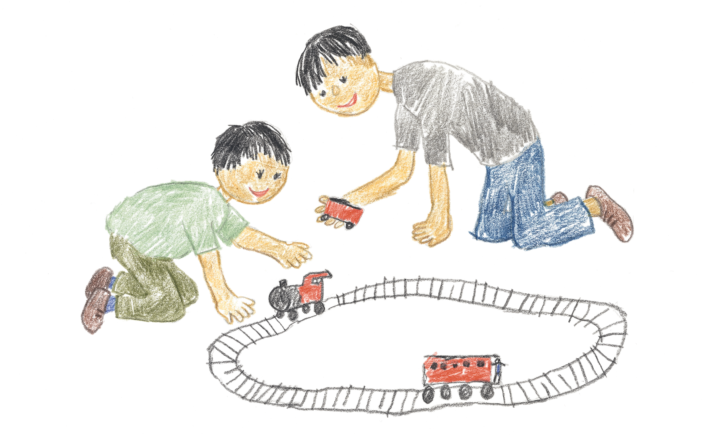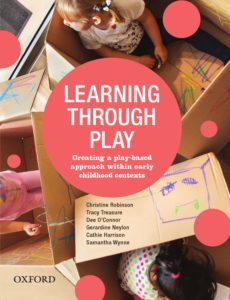Article first published in Education Review.
By Learning Through Play (OUP) author and Senior Lecturer in Early Childhood Education and Care at the University of Notre Dame Australia, Christine Robinson
The campaign by the Early Learning and Care Council of Australia to encourage state and federal governments to fund two years of play-based learning for pre-schoolers is to be lauded. It is crucial that play based learning has been highlighted by the organisation. However, this kind of program is not always easy to implement and many factors can impact on its success.
Research is clear that play is crucial to children’s learning and development. In The Neurology of Childhood, researchers Susan Anderson and Daniel Pine state that “play functions to facilitate the development of social, cognitive, emotional and motor skills, and the ability to use these capacities flexibly in a changeable and unpredictable environment”. In the context of an early childhood class or centre, educators can draw on children’s natural inclination to play to assist them in discovering, exploring and questioning the world around them.
A play-based approach is premised on viewing the child as capable, curious and as an active co-constructor of their world. Play-based approaches draw on the knowledge and experiences of the family to ensure continuity for the child as they move between home and school/centre.
Knowledgeable educators draw on the interests and abilities of the child to provide opportunities for play that value-add and extend children’s learning and development.
A fine balance
Play should not deteriorate into chaos, nor should play be so tightly structured by adults that children are denied the opportunity to learn through their own initiative and exploration. There needs to be a balance of child-initiated play in the presence of engaged teachers. Engaged teachers are intentional in the environment they construct with children and have the skills to scaffold and extend children’s play. Engaged teachers are also able to determine when not to intervene, and instead allow the play to unfold.
What do high quality play-based pedagogies look like?
Educators enrich, scaffold, facilitate and enable a variety of opportunities for children to engage with others and their world. This means providing a range of areas in the indoor and outdoor environment that connect with children’s interests and abilities and at the same time encourage curiosity, inquiry and a desire to learn more. The environment should be fluid and changing as the children’s interests and learning progresses.
Children in settings that follow play-based pedagogies have voice and agency. They are able to contribute actively to their learning, and make suggestions about what they want to play and learn. Knowledgeable educators are are then able to facilitate children’s play and learning by value-adding to their experiences.
An example of effective play-based, child-led learning
Children are playing in a dramatic space that is set up to look like a house. The children may instead choose to play in the space as a restaurant. The educator in this example could facilitate and value-add to the children’s play by asking them questions such as, “Can I see the menu?” This then encourages the children in their play to consider how they might create a menu, to create a list of foods, or to think of a restaurant name. Rather than come in and create the restaurant space for the children, the educator instead adds to the play and promotes the learning of specific vocabulary, cooperation skills and the creation of different text forms (such as a menu) and yet doesn’t interfere with the play.
The right learning at the right time
In providing contexts outside of the home for very young children, it is essential that all aspects of quality are adhered to, and central to this is the implementation of a play-based approach. Simply because children are in settings outside the home does not give reason to introduce more formalised structures in the early years.
Formalising learning early does not result in better outcomes for children. Children who are not ready for skills or concepts cannot learn these, and if they do, it is often remembered but not understood. Researcher Elena Bodrova warns; “The effects of academically oriented preschool programs reveals that they do not necessarily guarantee future academic success, especially in the long-term, and may even exacerbate children’s problems in social and emotional areas”. Rather, quality programs and settings value and address the individual needs of the child within a pedagogy that promotes child-initiated play.


Leave a Reply